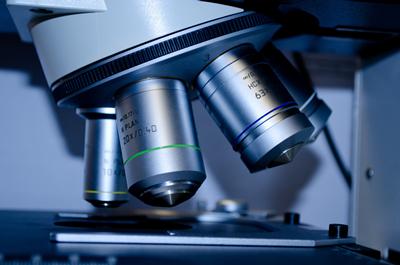Research led by Southampton academics, could lead to first Lassa virus vaccine

A study led by the Biological Sciences, at the University of Southampton has unearthed findings which could support the creation of the first vaccine for the deadly Lassa virus. This highly infectious agent is amongst a panel of viruses, which includes Ebola, which cause severe hemorrhagic fever in humans.
As there is currently no effective vaccines or treatments available to combat this virus, the findings, published in Proceedings of the National Academy of Sciences of the United States of America (PNAS), will support efforts to generate a vaccine to tackle the subsequent outspread of the disease.
The Lassa virus is commonly found in West Africa and is transmitted to humans mainly through handling rats, food or household items contaminated by rats’ urine and faeces. The virus can spread between people through direct contact with the body fluids of a person infected with Lassa fever, as well as contaminated bedding and clothing.
According to figures released by the Nigeria Centre for Disease Control (NCDC), the current Lassa virus outbreak in Nigeria has resulted in a total of 444 confirmed cases, including 111 recorded deaths to date. This is the largest outbreak of the Lassa virus ever reported in Nigeria.
Any successful vaccine to combat the Lassa virus would likely include the viral spike that functions on the virion surface and is responsible for helping the virus enter a target cell. It is hoped that by including mimics of the viral spike the body’s immune system will make antibodies against the spike that are capable of neutralising the virus.
Making a vaccine against Lassa virus is difficult and one characteristic, which enables it to avoid detection by the immune system, is a dense coat of sugars that are attached onto the surface of the spike, otherwise known as glycans.
Professor Max Crispin, Professor of Glycobiology and Principal Investigator of the study from the University of Southampton, said: “We hope that by understanding the glycan shield of Lassa virus we will be able to help in the efforts to generate an effective vaccine.
“Given the impact of Nigeria’s largest-ever Lassa fever outbreak this year, it is critical that we begin to identify the idiosyncrasies which could help to create a vaccine to combat this highly infectious agent and ensure it is contained.”
As part of the study, titled ‘Structure of the Lassa virus glycan shield provides a model for immunological resistance', the research team has created a detailed map of the glycan shield which has shed light on why the virus is so immunologically resistant.
The findings provide a potential blueprint for understanding how glycans render the glycoprotein spikes of Lassa virus and how the infection could be combated.
Professor Thomas Bowden, co-author of the study from the University of Oxford, said: "The development of a vaccine for a virus such as this is a long and complex process.”
"These findings have important implications for researchers developing vaccines against Lassa virus, providing a benchmark to assess future vaccine candidates.”
Notes for editors
1. Professor Max Crispin from the University of Southampton is available for interview. To request an interview please contact the media relations team.
1. The work at the University of Southampton was principally supported by the Bill & Melinda Gates Foundation through the Collaboration for AIDS Vaccine Discovery Grant (OPP1115782).
1. The University of Southampton drives original thinking, turns knowledge into action and impact, and creates solutions to the world’s challenges. We are among the top 100 institutions globally (QS World University Rankings 2019). Our academics are leaders in their fields, forging links with high-profile international businesses and organisations, and inspiring a 24,000-strong community of exceptional students, from over 135 countries worldwide. Through our high-quality education, the University helps students on a journey of discovery to realise their potential and join our global network of over 200,000 alumni. University of Southampton Website.
Media contact:
Josh Bell, Media Relations, University of Southampton, email: j.g.bell@soton.ac.uk